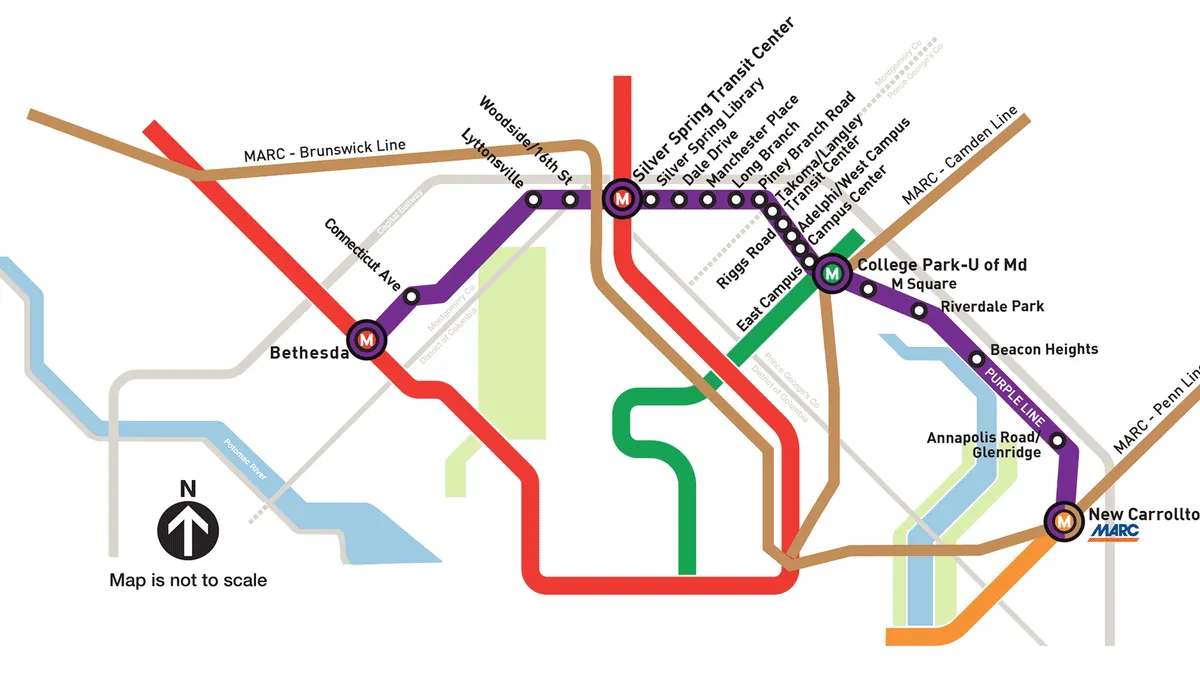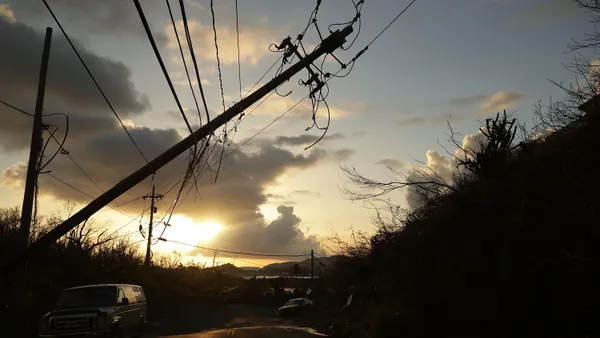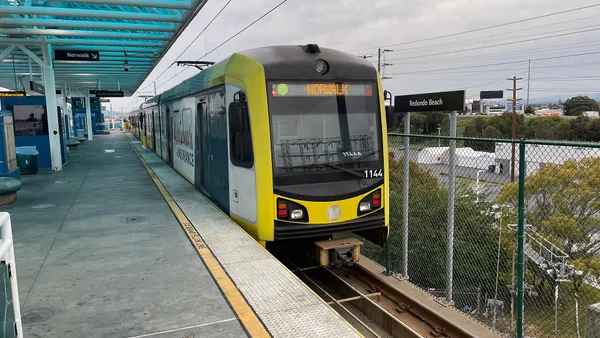Dive Brief:
- Members of the consortium contracted to finance, design, build, maintain and operate the stalled $5.6 billion Purple Line light rail in the Washington, DC, suburbs of Maryland say they are not backing out of the project just yet, according to The Washington Post.
- The CEO of Purple Line Transit Partners, Rob Chappell, told reporters at a rally in support of the project that the team of designers, engineers and contractors are committed, even though state officials have estimated that costs increase by $13 million for every month of delay.
- Thus far, according to The Post, the state has spent $380 million on the 16-mile line in the design and planning stages.
Dive Insight:
Last June, Purple Line Transit Partners — a joint venture between Fluor, Meridiam and Star America — announced its deal with the MTA for delivery of the Purple Line. At signing, the state planned to kick in $3.3 billion for construction, and Purple Line Transit Partners said it would finance $1 billion.
However, a federal judge halted the project in August, a few days before it was to close on a $900 million Federal Transit Administration grant, because of questions regarding ridership numbers. The project was originally intended to start in October, but Purple Line officials said they can make up the lost time if allowed to restart soon.
The FTA said in December that the judge's main point of criticism — the impact of declining ridership on DC's Metrorail — would not affect the Purple Line. Leon has not yet issued a final ruling. Until he does, the project is not eligible for the $900 million FTA grant nor an additional $350 million of federal financial help.
State officials, some residents, local businesses and other pro-Purple Line activists have called on Leon to make a ruling so that construction can get underway. Critics of the project, however, still maintain that a bus rapid transit system would better serve the area and eliminate the need to deforest and pave over a large swath of a popular local park.
The project hit another bump when an April 1 deforestation deadline came and went. From April 1 to September 30, crews are prohibited by federal law from disturbing wooded areas that host migratory bird nests. That means that, if given the go-ahead, the project couldn't start until October.













